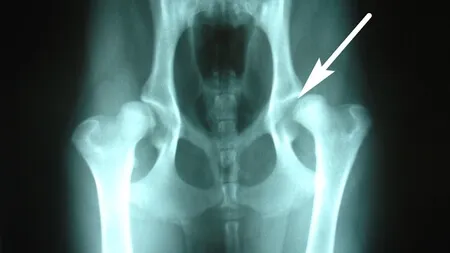Goldendoodles, with their charming personalities and luscious coats, have captured the hearts of many dog lovers. As hybrids of Golden Retrievers and Poodles, they inherit a unique blend of traits, including a predisposition to certain health concerns that make their puppyhood nutrition critically important. Choosing the Best Dog Food For Goldendoodle Puppies is not just about satisfying their appetite; it’s about laying a strong foundation for a healthy, active life and, crucially, mitigating the risk of debilitating conditions like hip dysplasia. Understanding their specific dietary needs during this rapid growth phase is paramount for every Goldendoodle owner.
Understanding Goldendoodle Puppy Nutritional Needs
Due to their genetic lineage, particularly from the Golden Retriever side, Goldendoodle puppies are classified as large breed dogs. This classification is vital because large breed puppies have distinct nutritional requirements, especially concerning mineral content, compared to their smaller counterparts. The rapid growth rate of large breeds can be a double-edged sword: while impressive, it also makes them vulnerable to developmental orthopedic diseases, such as canine hip dysplasia (CHD).
The period from birth up to 15 to 18 months of age is a critical window for Goldendoodle puppies. During this time, their bones and joints are rapidly developing, and a diet with too much calcium can severely disrupt this process. This imbalance can lead to a crippling and permanent form of hip disease, causing pain and mobility issues throughout their lives. Therefore, selecting a diet specifically formulated for large breed puppies is the cornerstone of responsible Goldendoodle puppy care. If you are looking for more expert advice on dog nutrition, you can explore resources like victor nutra pro dog food advisor.
The Critical Role of Calcium in Puppy Diets
Excessive calcium intake in large breed puppies, including Goldendoodles, interferes with the proper ossification (bone formation) process. Instead of promoting stronger bones, too much calcium can lead to skeletal abnormalities. Even Goldendoodle puppies bred from smaller Poodles can carry genetic material from a Golden Retriever, meaning they are still at an elevated risk for diet-related hip dysplasia. The key is a carefully balanced diet that supports healthy growth without over-accelerating it or causing mineral imbalances.
 X-ray of a large breed dog with bilateral hip dysplasia
X-ray of a large breed dog with bilateral hip dysplasia
This X-ray clearly illustrates the tragic bone and joint damage that can result from bilateral hip disease in large breed dogs. Ensuring your Goldendoodle puppy receives the correct calcium levels is crucial for preventing such painful and permanent conditions.
Key Considerations When Choosing Food for Your Goldendoodle Puppy
When selecting the ideal food for your growing Goldendoodle puppy, keep the following factors in mind:
- Large Breed Puppy Formulation: Prioritize foods explicitly labeled for “large breed puppies.” These formulas are designed with controlled calcium and phosphorus levels to support appropriate bone development and growth rate.
- Balanced Calcium-to-Phosphorus Ratio: A ratio typically between 1.1:1 and 1.4:1 is often recommended for large breed puppies. Avoid foods with excessively high calcium levels.
- High-Quality Protein Sources: Look for real meat (e.g., chicken, lamb, beef, fish) as the first few ingredients. Proteins are essential for muscle development, immune function, and overall growth.
- DHA (Docosahexaenoic Acid): Often sourced from fish oil, DHA is a crucial omega-3 fatty acid that supports healthy brain and eye development in puppies.
- Appropriate Calorie Content: While puppies need energy for growth and play, excessive calories can lead to rapid weight gain, putting undue stress on developing joints. A large breed puppy formula will typically have an energy density suited for their specific growth curve.
When to Transition from Puppy to Adult Food
The transition from puppy food to adult dog food is another critical phase that requires careful timing for Goldendoodles. Goldendoodle puppies are considered fully grown and ready for adult food typically between 15 to 18 months of age. Switching your Goldendoodle puppy to adult food too soon can increase their risk of developing diet-related canine hip disease, as adult foods generally do not have the precisely controlled calcium levels required for growing large breed puppies. It’s always safer for a growing puppy to remain on a large breed puppy formula longer than necessary than to switch to adult food prematurely. An adult Goldendoodle can safely eat large breed puppy food, but a growing puppy should never eat adult dog food.
 A happy Goldendoodle puppy playing outdoors
A happy Goldendoodle puppy playing outdoors
A healthy Goldendoodle puppy, raised on an appropriate diet, will have the energy and vitality to enjoy playful moments outdoors, reflecting their excellent physical development.
General Feeding Tips for All Goldendoodle Life Stages
While our focus is on puppies, establishing good feeding habits from a young age benefits Goldendoodles throughout their lives.
- Portion Control and Ideal Weight: Overfeeding is a common mistake. A landmark study found that dogs maintained at an ideal body condition lived nearly two years longer than their overweight counterparts. Start with the feeding guidelines on the food package and adjust as needed to maintain your Goldendoodle’s ideal weight. You can assess their condition by being able to feel their ribs easily without seeing them, and observing a visible waist.
- Gradual Food Transitions: When switching to a new food, whether from puppy to adult formula or changing brands, do so gradually over 7-10 days. Mix increasing amounts of the new food with decreasing amounts of the old food to prevent digestive upset.
- Hydration: Always ensure your Goldendoodle has access to fresh, clean water. Hydration is crucial for all bodily functions, especially for active, growing puppies.
- Adult and Senior Needs: While puppies require growth-focused diets, adult Goldendoodles can thrive on many high-quality formulas, wet or dry. Older Goldendoodles (typically over 8 years of age) may benefit from senior-specific diets that are higher in protein and lower in calories to support muscle mass and manage weight as their metabolism slows. For information about local options, you might look into american natural premium dog food near me.
 Another happy Goldendoodle playing outdoors, demonstrating healthy energy levels
Another happy Goldendoodle playing outdoors, demonstrating healthy energy levels
An active and healthy Goldendoodle, exhibiting robust energy, is a testament to diligent care and appropriate nutrition from puppyhood through adulthood.
Conclusion
Providing the best dog food for Goldendoodle puppies is a critical responsibility that directly impacts their long-term health and well-being. By choosing a high-quality, large breed puppy formula with controlled calcium levels, you are actively protecting your Goldendoodle from the risks of hip dysplasia and supporting their healthy development. Remember to observe their growth, consult feeding guides, and make transitions thoughtfully. Always consult with your veterinarian for personalized advice regarding your Goldendoodle puppy’s specific dietary needs and health concerns. For more insights into comprehensive Goldendoodle care, explore other articles on our website!
Sources
- Lauten SD, Nutritional Risks to Large Breed Dogs: From Weaning to the Geriatric Years, Vet Clin Small Anim 36 (2006) 1345–1359.
- Royal Canin, Large breed puppy, When does my puppy become an adult dog?
- Lynn Buzhardt, DVM, VCA Hospitals, How Old Is Old? Comparing Dog Age to Human Age
- https://www.avma.org/News/Journals/Collections/Documents/javma_220_9_1315.pdf
- IAMS: How to Transition Your Puppy to Adult Food, IAMS
- Purina: When to Switch to Adult Dog Food?
